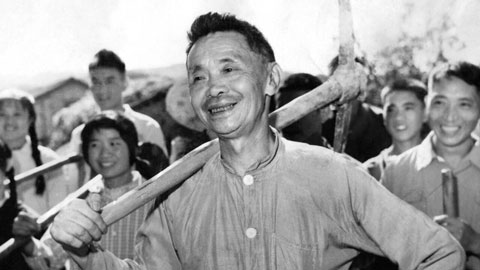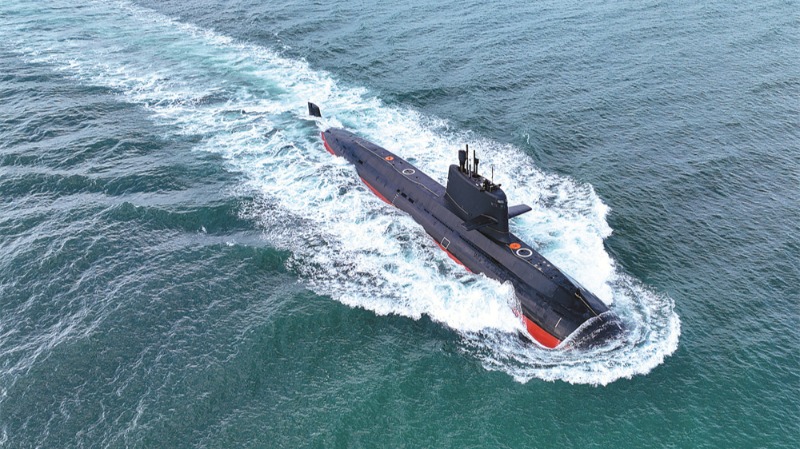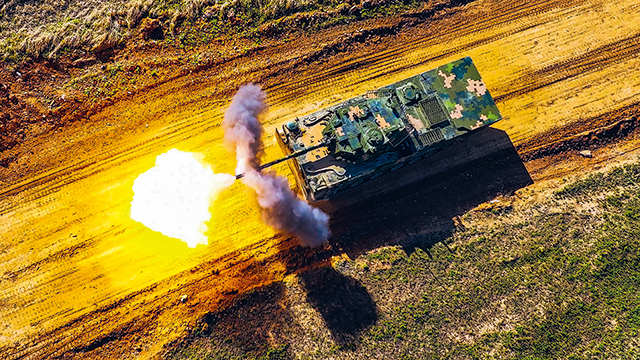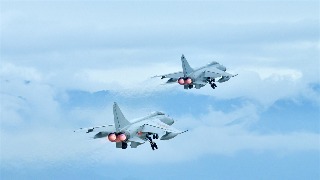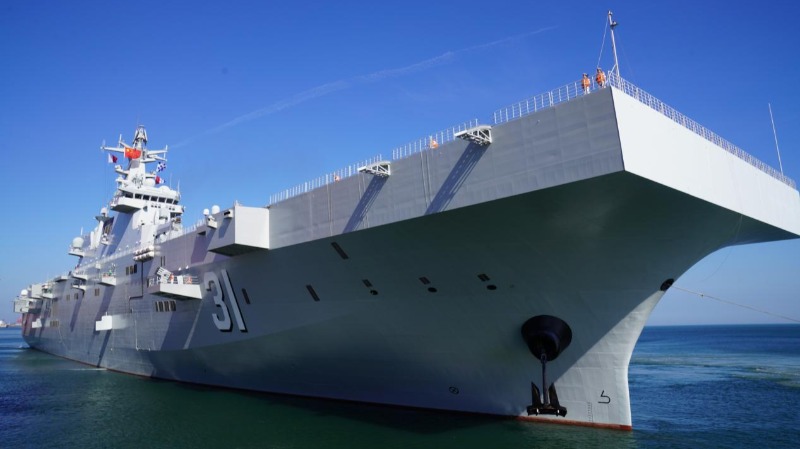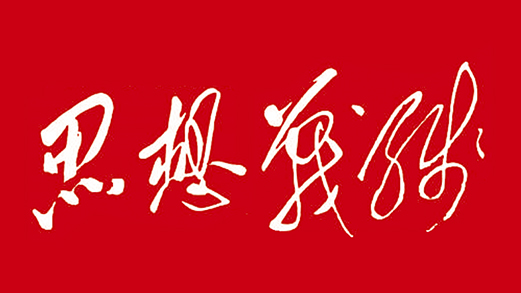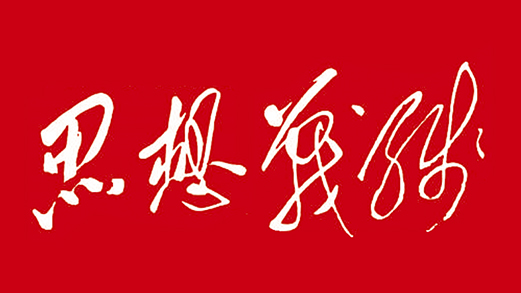By Yang Danzhi
杨丹志
On May 26, the multilateral exercise KAMANDAG, involving the armed forces of the US, Japan, the Philippines, and the ROK, officially commenced. For the first time, the Amphibious Rapid Deployment Brigade of Japan Ground Self-Defense Force (JGSDF) will carry out joint operations with the ROK Marine Corps.
26日,美国、日本、菲律宾和韩国军队参与的“海上战士合作”(KAMANDAG)多边联合演练正式开始。日本陆上自卫队“水陆机动团”将与韩国海军陆战队开展首次联合行动。
The strengthening of Japan-ROK defense cooperation is a direct result of Washington's push for the US-Japan-ROK trilateral and mini-lateral cooperative framework. The US is seeking to bind Japan and the ROK to its security strategy, treating them as appendages to its "Indo-Pacific Strategy" in order to maximize its control over the Asia-Pacific region. However, the political landscapes of all three countries have shifted significantly compared to the past. As a result, the prospects for further upgrading Japan-ROK defense cooperation remain uncertain.
日韩防务合作的强化,是美国力推美日韩“小三边”机制的结果。美方试图将日韩与其安全战略进行捆绑,将两国作为其“印太战略”的附庸,最大限度地保证美国在亚太地区的控制力。但是,如今美日韩三国的政局与之前相比都发生了很大变化,日韩防务合作能否进一步升级,存在不少不确定性。
First, the next administration in the ROK may show less enthusiasm for strengthening defense cooperation with Japan. Currently, Lee Jae-myung, the presidential candidate from the Democratic Party of Korea, is leading in public opinion polls. He has stated that, if elected, he will pursue a policy of "pragmatic diplomacy," advancing relations with China, the US, Japan, and Russia based on the national interests and practical considerations of the ROK. He has also pledged to restore ROK-DPRK communication channels and advance inter-Korean dialogue. If he assumes office, the ROK would likely adopt a more cautious stance than the Yoon Suk-yeol administration on both defense cooperation with Japan and participation in US-Japan-ROK trilateral frameworks.
第一,下届韩国政府对于强化韩日防务合作的意愿可能会减弱。目前,韩国共同民主党总统候选人李在明民意支持率一马当先。他已表示将在当选后采取“实用外交”策略,基于韩国国家利益与实用性,发展与中国、美国、日本、俄罗斯四国的关系。同时,李在明还承诺推进恢复朝韩沟通渠道,推动南北对话。若李在明上台,韩国政府对于韩日防务合作的进展,以及在美日韩三边合作中的参与程度,均可能会比尹锡悦政府时期更为谨慎。
Second, deep-rooted historical grievances and territorial disputes between Japan and the ROK have created a fragile foundation of public opinion for bilateral defense cooperation. Japan has long been criticized for its ambiguous stance and lack of genuine remorse over wartime issues, including the forced recruitment of comfort women and laborers during its colonial rule over the Korean Peninsula. These unresolved historical tensions have fueled long-standing resentment among people of the ROK, and related civil disputes could resurface at any time, directly affecting intergovernmental communication and cooperation. Meanwhile, the territorial dispute between the two countries has only been shelved, not resolved. The Yoon Suk-yeol administration previously faced sharp domestic backlashes for pursuing what many perceived as a "pro-Japan" policy. For instance, the decision to allow Japanese Self-Defense Forces temporary wartime access to the ROK to transport supplies for US troops stationed there sparked widespread public protests. In a political climate already unsettled by emergency martial law debates and presidential impeachment proceedings, the next ROK administration is likely to take public sentiment toward Japan more seriously as it seeks to consolidate its domestic support.
第二,日韩之间存在复杂的历史问题和领土纠纷,两国加强防务合作的民意基础并不稳固。因日本方面对其殖民侵略朝鲜半岛时期强征“慰安妇”、强征劳工等历史问题一直含糊其词、缺乏反省,不少韩国民众长期以来对日本极为不满。因历史问题造成的两国民间纠纷随时可能发酵,并将直接影响双方官方层面的沟通和合作。同时,两国领土争端也只是暂时搁置,从未得到彻底解决。尹锡悦政府此前被批推行“媚日外交”,曾在韩国国内引发民意强烈反弹。例如,韩方允许日本自卫队在战时为驻韩美军运送物资临时进入韩国的决定,就遭到民众的强烈抗议。在韩国社会已经因紧急戒严事件和总统弹劾案出现不确定性的情况下,下一届韩国政府可能会非常重视韩国社会对日本的态度,以稳定其执政基础。
Third, a potential reduction in US involvement could weaken the momentum of Japan-ROK defense cooperation. Progress in Japan-ROK bilateral security ties has largely depended on active US mediation and pressure, which have been instrumental in mending strained relations and advancing defense coordination between the two countries. However, the new US administration's emphasis on "America First" suggests a shift toward prioritizing American interests within the trilateral framework, while showing reluctance to shoulder greater responsibilities. There are also signs that Washington may demand increased financial contributions from Tokyo and Seoul under the guise of security commitments. If the US adopts a more hands-off approach in the future, the Japan-ROK defense partnership – currently sustained primarily by external pressure – could face serious challenges in sustaining further development.
第三,美国投入的减少也可能弱化日韩防务合作力度。日韩防务合作能够取得进展,美国发挥的作用不容小觑。美国的调节和施压,对于两国关系的修复及安全合作的强化至关重要。然而,新一届美国政府强调“美国优先”,在新的美日韩合作框架中想要谋取更多利益,不愿承担过多义务,甚至以安全要挟日韩多出“保护费”。在美国可能当“甩手掌柜”的情况下,重压之下被捏合的日韩防务合作,未来能否继续发展还有待观察。
(The author is a senior researcher at the Institute for National Security Studies at Renmin University of China.)
(作者是中国人民大学国家安全研究院高级研究员)
Editor's Note: Originally published on huanqiu.com, this article is translated from Chinese into English and edited by the China Military Online. The information and opinions in this article do not necessarily reflect the views of eng.chinamil.com.cn.








